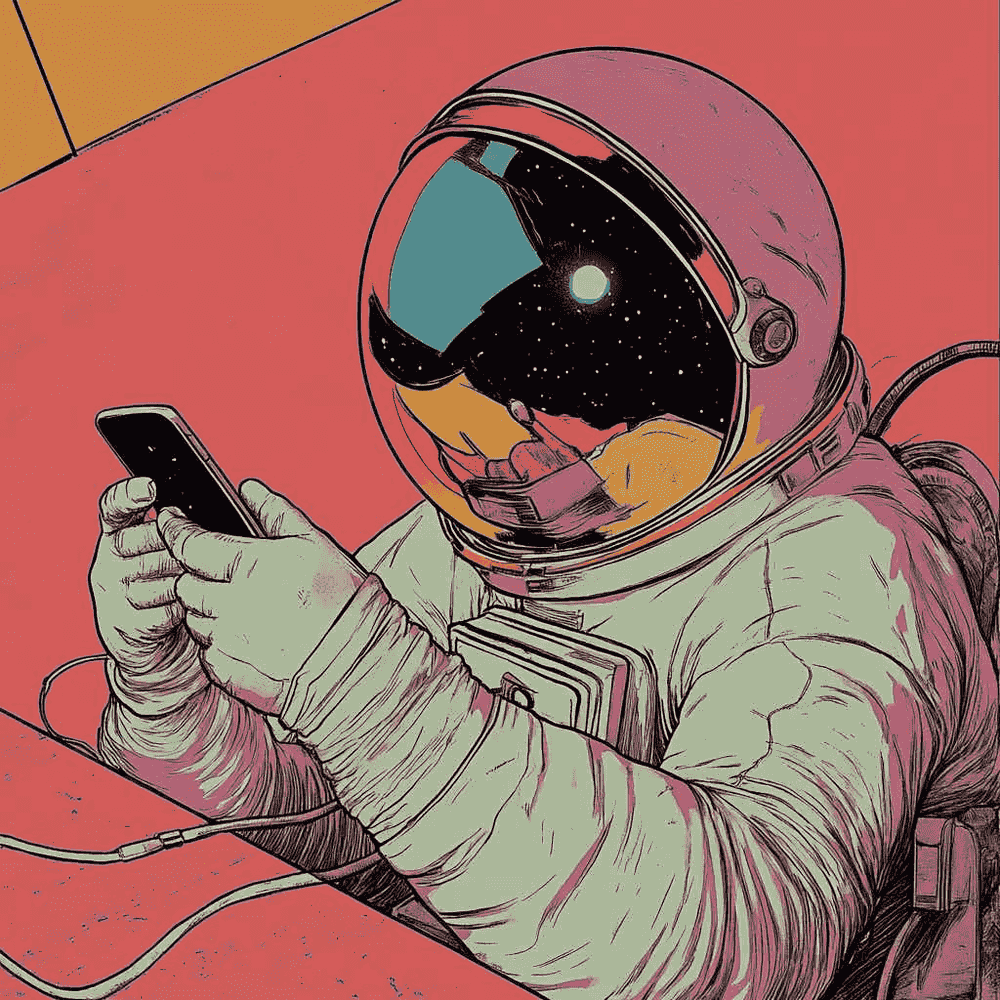You’re reading The Steady Beat, a weekly-ish round-up of hand-picked articles and resources for people who make software products: designers, engineers, product managers, and organizational leaders.
By the Numbers - Gen Z And Their Phones
- 95% — The share of Gen Z consumers in the United States who owned a smartphone in 2024. In the UK, it’s even higher at 98%.
- 2024 — The year Gen Z cemented its dominance as a consumer electronics powerhouse, with its members leading the charge in both innovation and nostalgia-driven tech trends.
- 18 — The approximate number of hours Gen Z spends on their phones per week in the U.S., navigating a balance between staying connected and managing screen-time addiction.
- 50% — The percentage of Gen Zers who, feeling nostalgic, have taken to purchasing “simpler” devices like dumb phones and wired headphones to cut down on screen time.
— Statista
Designing for Gen Z: Authenticity Over Attention Spans
Forget snackable content for Gen Z; this generation craves more than bite-sized gimmicks. Gen Z isn’t just on TikTok and YouTube—they’re rewriting the UX playbook with values like accessibility, inclusivity, and a no-nonsense attitude toward brands. Their demands are simple yet high-stakes: accessibility by default, trustworthiness, mobile-only design, and social proof as a staple. Authenticity and respect for their intelligence are must-haves; flashy AI-driven fluff just won’t cut it. Want to get Gen Z on board? Ditch the polish, keep it real, and start designing with them, not just for them.
— Smashing Magazine, 11m, #design #product
Gen Z Remote: Freedom Meets Structure
Gen Z may be the first digitally native generation, but managing them remotely isn’t as simple as logging in and letting them loose. They crave both independence and structure, meaningful work and mental wellness, which can be hard to balance over screens. Solutions are emerging, though: flexible project management tools that allow autonomy, virtual mentorship programs, and “Do Not Disturb” hours all support their need for guided freedom. Companies embracing these tools, along with transparent communication and purpose-driven goals, are discovering that meeting Gen Z’s high standards just might elevate everyone’s game.
— Tech Bullion, 9m, #management #leadership
Want Gen Z, You’ll Need AI
Gen Z isn’t just comfortable with AI; they’re betting on it to transform the workplace and cut through the drudgery. Raised on tech, they’ve arrived at work expecting flexible hours, freedom, and the efficiency AI promises, like automating tedious tasks so they can focus on meaningful work. Companies that want this fresh talent can’t afford to be tech dinosaurs. The new bottom line: embrace AI, streamline tech adoption, and build a learning culture—because if your org can’t keep up, Gen Z will find one that can.
— Technical.ly, 6m, #tag
Why Traditional Product Management Won’t Fly for Gen Z
Millennials grew up in a world transforming from analog to digital, while Gen Z knows nothing but digital. This generational gap means product managers can’t use the same strategies for both. Chetan Zawar, a product lead at TikTok, argues that Gen Z’s focus on authenticity, ethics, and real-time feedback demands a shift in product management. While Millennials appreciate functionality and brand loyalty, Gen Z gravitates toward transparency, ethical business practices, and low-commitment purchases. To appeal to both, Zawar advises product managers to embrace feedback, customize for connection, and champion values.
— Mind The Product, 8m, #productmanagement
Less Meetings, More Context
Have you tried Steady? It’s an AI-powered coordination layer that eliminates 83% of meetings for software teams.
Steady runs in the background, distilling plans and progress from tools, teams, & people into tailored summaries, giving everyone the clarity they need to build outstanding products together. With Steady, everyone has continuous context at their fingertips, eliminating the need for burdensome shoulder taps, interruptions, and endless meetings.
Learn more at steady.space.

